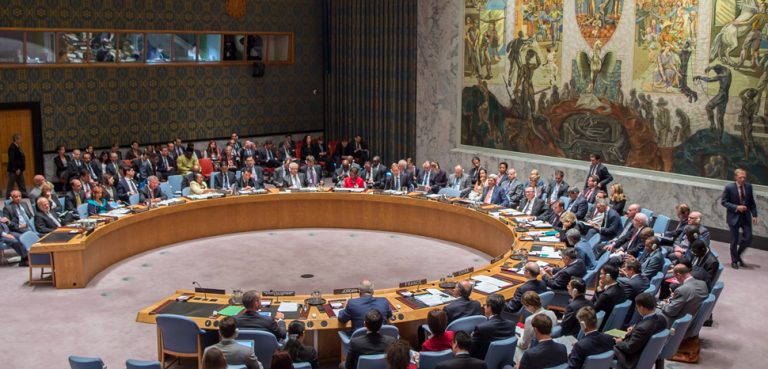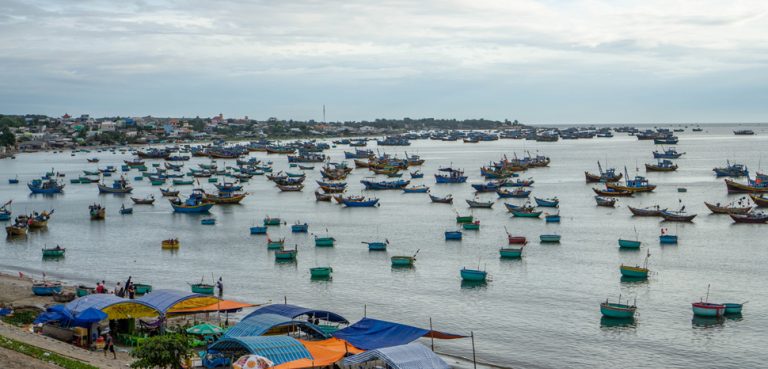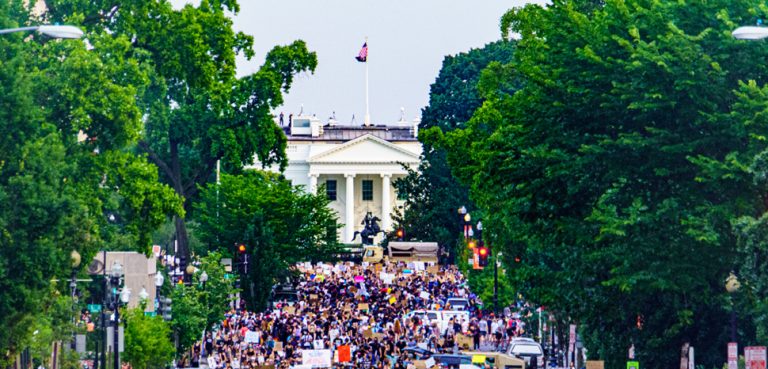It is half a year since the genesis of the COVID-19 crisis, and the virus’ spread and various state countermeasures across the globe have radically upended the “business-as-usual” of modern lifestyle. Locally-based industries have been devastated as well as globe-spanning industries, such as airline and tourism, which have been forecasted to suffer for years, with more layoffs to come.
The impression one gets via reporting from major corporate media outlets is the pandemic is halting history’s drive towards a tectonic geopolitical convulsion, which was seemingly the trend since the beginning of the roaring 20s of this century. For instance: the drone-strike assassination of Major General Qasem Soleimani of Iranian Revolutionary Guard Corps (IRGC) in January, which feels like years ago now. Yet geopolitical events continue to brew under the surface. Beijing continues to implement its expansionist program in the South China Sea, as well as an unprecedented crackdown on Hong Kong. Meanwhile Tehran has been engaged with the Caracas government in propping up the Venezuelan petro-industry, a factor that could potentially sow deeper tension with Washington DC. As the public discourse is preoccupied by the ongoing public health crisis – and now the massive US-wide protest movement in reaction to George Floyd’s murder by Minneapolis Police – these kinds of geopolitical shake-ups, combined with the COVID-19 crisis, possess the potential to radically accelerate the transformation of the geopolitical landscape. Add to this mix some Big Data-premised domestic state programs – think tech-based contact tracing that may find a home in wider social applications – that could also potentially alter the balance of power between the state and its public.
These cases are further demonstrating globalization’s glaring ironies. The more coupled the movement of population and trade, the deeper the global meta-network became fragile, rendering itself prone to massive disruption, a systemic risk fleshed out by Thomas Homer-Dixon in his 2006 work The Upside of Down: Catastrophe, Creativity and the Renewal of Civilization. In response, fundamental redistribution of supply-chain networks has been proposed by strategists and enacted by firms as countermeasure to potential risks that may arise in the future.
The current interruption of globalization could result in its irreversible shattering. Yet it is not the first time. The global economy was deeply integrated in the late 19th century to the early decades of the 20th century as well, only to meet its demise in the protracted collapse of two World Wars and the Great Depression. These events ultimately shattered British-led globalization. In turn, the torch of hegemony was inherited by the United States, which at first pursued a more or less multilaterally regulated Bretton Woods System until neoliberal re-globalization starting in the 1970s. We have heard chorus of commentaries in recent months that COVID-19 will “change the world forever.” It may be true that there will be long-lasting fundamental shift in some practices. Yet we may want to take those “forever” analyses with some loads of salt, since humanity generally doesn’t seem to learn from past mistakes all too well.
Deeper in history, system-collapsing events were experienced before the Industrial Revolution. In 17th century Europe, a complex mesh of political, economic, and environmental events served to not only alter the geopolitical and religious landscape, but also generate a scientific-philosophical meta-worldview that would persist until the middle of 20th century, and in some respects, to this day. Philosopher Stephen Toulmin underscores that early 17th century Europe was one of the most chaotic periods in European history: the collapse of the economic growth that was led by Spain, fueled by silver from South America; devastating security breakdowns of the Thirty-Year War and Wars of the Three Kingdoms; skyrocketing unemployment; devastating plague returning to Paris, killing nearly a million as well in Italy, killing even more there; and an ongoing “Little Ice Age” that dramatically reduced crop output in an overwhelmingly agrarian European society.
This devastating complex interplay of factors, according to Toulmin, produced among the intellectuals and authoritative institutions of the time an insatiable craving for clarity and certainty, which resulted in the construction of rationalist epistemological paradigms. These theories were characterized by heavy dogmatic emphasis on abstract principles stressing the universal, the general, and the timeless at the expense of the ideas that were prevalent in the Renaissance humanism of the preceding era: the particular, the local, and the timely. Toulmin notes that in the counter-Renaissance “rationalists hoped to elevate questions of epistemology, natural philosophy, and metaphysics out of reach of contextual analysis,” and that this crises-generated analytical environment not only influenced the course of metaphysical systems (for instance, further centralization of the Papacy, an institution mere three centuries prior still was disputed by its key scholars as being the final interpreter of the Christian scriptures) but also political systems, such as absolutist monarchy in France. Toulmin notes that the quest for certainty via abstract theorizing, as opposed empirical information analysis, was the modus operandi of the intellectuals of the era.
This leads us to geopolitical risk analysis in our times. In addition to an ongoing public health crisis and the rapid onset of global economic crisis, the United Nations World Food Programme (WFP) has warned in April of a nutritional crisis that may engulf regions of the world resulting in up to 265 million people experiencing starvation by the end of 2020. Latin America – now a growing epicenter of COVID-19 – is already experiencing food crisis, and is brewing civil unrest in certain regions. Bearing in mind that inflation in food prices has been determined as a factor in instigating “Arab Spring” revolts that toppled MENA governments early in the last decade, geopolitical ripples resulting from a potential hunger pandemic should not be ignored. Yaneer Bar-Yam, complexity analyst and founder of New England Complex Systems Institute (NECSI), has concluded that the 2008 Great Recession, coupled with ramped-up ethanol production, triggered a massive shift of investment speculation into commodities, which in turn raised food prices. According to Bar-Yam, this led to social breakdown in the MENA, as well as in South Africa, demonstrating the inter-linked nature of financial-economic crisis to geopolitical instability.
Meanwhile, Nouriel Roubini, economist who successfully predicted the 2008 Great Recession two years beforehand, has issued another warning, asserting that debts accumulated via the current crisis will likely disrupt the global economy in the years to come, potentially plunging the world into its next full-fledged depression. Meanwhile, the US civil protests (now global) have exhibited unprecedented ferocity. Psychological stress, resulting from COVID-19 pandemic and lockdowns, which hit most devastatingly on the low-wage working class, cannot be discounted as contributing amplifying factor (in addition to genuine grievances) to its intensity.
Reminiscent of the 17th century environment outlined by Toulmin, the post-COVID-19 world may face long-term consequences that not only affect immediate geopolitical configurations and alter domestic balances of power and even fundamental worldviews. This may be an especially pressing element for states where more binary-entrenching extreme political views have taken deeper root (including those in the West). In addition some traditionalist expression of religions have returned, in what seems to be a search for meaning of life and quest for certainty in a rapidly transforming world, a quest that Toulmin asserted was a driving force for the Post-Westphalian European worldview.
The COVID-19 crisis may trigger the four-decades long inertia of neoliberal globalization to slow down or even retreat, resulting in firms redistributing production and supply-chains while also potentially driving states to onshore production of key strategic and critical products, thus emphasizing resiliency and security over cost-cutting. While this strategic measure does not guarantee domestic employment due to accelerating implementation of Artificial Intelligence in the manufacturing sector, it is a security risk reduction measure nonetheless. It may even reverse the capital mobility aspect of globalization that was noted by free-market advocate Jagdish Bhagwati as being prone to “panics and manias,” a major increasing risk generating factor (led by what he designated as the Wall Street-Treasury Complex) in a massively globally linked economy. While reducing globalization may increase social stability within the world system, certain post-COVID-19 trends may on the other hand accelerate in direction of over-stability (authoritarianism or outright totalitarianism), as trends leading toward social control via Big Data and some ideologies that promote extreme forms of certainty that will drain humaneness and social vitality in a given society.
Those in geopolitical intelligence analysis should be aware of the long-term potential outcome of the COVID-19 crisis and the nature of society its aftermath could engender. In the two decades after 9/11, the geopolitical stage has become increasingly turbulent. Additionally, the quantity of information – and noise – rife in the open-source domain is simply astronomical. It is a useful reminder to consider past society-altering complex crises and their transformation of worldviews as well as the more immediate geopolitical environment. Doing so could serve as a useful lantern in the dark fog of this juncture of history we are now entering, as we enter our roaring decade of the 2020s.
The views expressed in this article are those of the authors alone and do not necessarily reflect those of Geopoliticalmonitor.com or any institutions with which the authors are associated.




